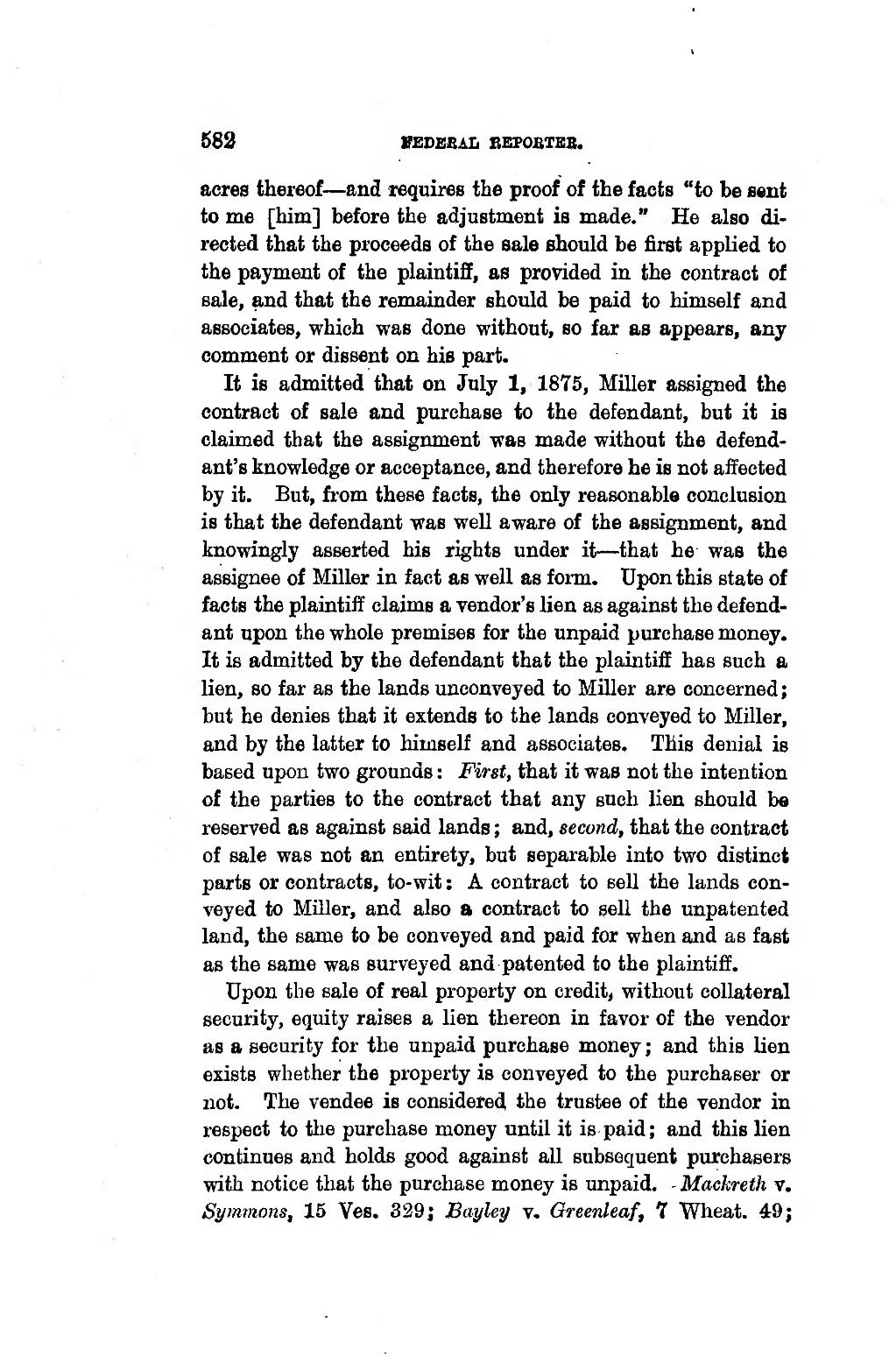582 VEDESAIi 8EP0STBB. �acres thereof — and requires the proof of the facts "to be Bcnt to me [him] before the adjustment is made." He also di- rected that the proceeds of the sale should be ôrst applied to the payment of the plaintif, as provided in the contraot of sale, and that the remainder should be paid to himself and associates, which was done without, so far as appears, any comment or dissent on his part. �It is admitted that on July 1, 1875, Miller assigned the contraot of sale and purchase to the defendant, but it is claimed that the assignment "was made without the defend- ant's knowledge or aoceptance, and therefore he is not affected by it. But, from these facts, the only reasonable conclusion is that the defendant was well aware of the assignment, and knowingly asserted his rights under it — that he was the assignee of Miller in f act as well as form. Upon this state of facts the plaintifï claims a vendor's lien as against the defend- ant upon the whole premises for the unpaid purchase money. It is admitted by the defendant that the plaintif has such a lien, 60 far as the lands unconveyed to Miller are concerned; but he denies that it extends to the lands conveyed to Miller, and by the latter to himself and associates. This deniai is based upon two grounds : First, that it was not the intention of the parties to the contract that any such lien should be reserved as against said lands ; and, second, that the contract of sale was not an entirety, but separable into two distinct parts or contracts, to-wit : A contract to sell the lands con- veyed to Miller, and also a contract to sell the unpatented land, the same to be conveyed and paid for when and as fast as the same was surveyed and patented to the plaintif. �Upon the sale of real property on credit, without collateral security, equity raises a lien thereon in favor of the vendor as a security for the unpaid purchase money; and this lien exists whether the property is conveyed to the purchaser or not. The vendee is considered the trustee of the vendor in respect to the purchase money until it is paid; and this lien continues and holds good against aU subsequent purchasers with notice that the purchase money is unpaid. - Mackreth v. Symmons, 15 Ves. 329; Bayley v. GreenUaf, 7 Wheat. e9; ����
